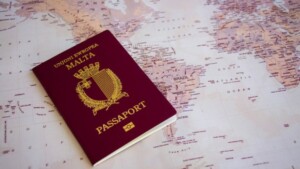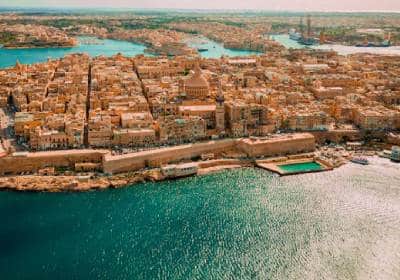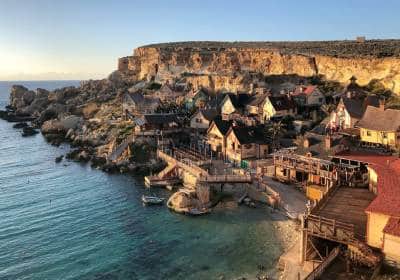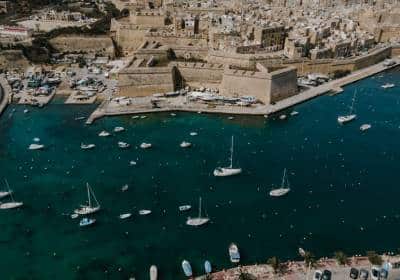Malta dual citizenship means that you can become a citizen of Malta while keeping your original citizenship. In Malta, dual citizenship is allowed and can be obtained through several routes such as investment, naturalization, marriage, or descent. Each path has its own rules and requirements.
This article will explain everything you need to know about Malta dual citizenship, including the different routes, the documents needed, the application process, the many benefits, and important details to look out for before starting your citizenship application.
- What is dual citizenship?
- Does Malta allow dual citizenship?
- 10 Benefits of Malta Dual Citizenship
- How to Get Maltese Citizenship
- Things to know about obtaining Malta Dual Citizenship
- Documents Needed for Malta Dual Citizenship
- Maltese Citizenship Application Process
- How to Retain Maltese Citizenship
Dual citizenship means a person is legally recognized as a citizen of two countries at the same time. This allows them to hold two passports, live, work, and access benefits in both countries. However, they must also follow the laws and responsibilities of both nations, such as paying taxes or military service if required.
Yes, Malta allows dual citizenship. This means people can be citizens of Malta and another country at the same time. Maltese citizens do not have to give up their original citizenship when they become citizens of another country. The same applies to foreigners who become Maltese citizens through birth, marriage, descent, or naturalization.
- Access to quality healthcare and education: Maltese citizens have access to Malta’s strong public healthcare and education programs across the EU.
- Family rights: Maltese citizenship can be passed to your children and future generations, giving long-term benefits to your family.
- Dual citizenship allowed: Malta allows you to keep your original citizenship while also being a Maltese citizen.
- Stable and safe country: Malta is known for its political stability, low crime, and high quality of life.
- Favorable tax system: Malta is a tax haven due to its residency-based tax system. It taxes individuals based on where they live, not their citizenship. If you’re not a tax resident in Malta, you pay tax only on income earned or received there, making it attractive for global investors and dual citizens.
- Business opportunities: Being an EU member, Malta offers easy access to the European market for business and trade.
- High standard of living: Malta offers a Mediterranean climate, good infrastructure, and a friendly community for a comfortable lifestyle.
There are several ways to get Maltese citizenship as a Plan B passport. These include citizenship by descent, marriage, naturalization, and by investment. Each route has its own rules and residency requirements, so it’s important to check what applies to your situation.
 Citizenship by Descent or Birth
Citizenship by Descent or Birth
People born in Malta between 21 September 1964 and 1 August 1989 automatically received citizenship at birth, regardless of their parents’ nationalities. Since then, a person born in Malta acquires citizenship at birth if at least one parent is a Maltese citizen or was born in Malta. Children born abroad to Maltese parents may qualify for citizenship by descent.
 Citizenship by Marriage
Citizenship by Marriage
Foreign nationals married to Maltese citizens can apply for citizenship by marriage after five years of marriage and cohabitation. If the Maltese spouse passes away before the five-year period, the surviving spouse may still apply, provided they were living together at the time of death.
 Citizenship by Naturalization
Citizenship by Naturalization
Foreigners may apply for citizenship by naturalization after legally residing in Malta for at least four of the previous seven years. Applicants must demonstrate proficiency in Maltese or English and fulfill a good character requirement. While not an official requirement, immigration officials favor applicants with Maltese ancestry or those who have been residents for a substantial period and have integrated into Maltese society.
Under the Maltese Citizenship Act, citizenship by registration is available to specific categories of people who have close ties to Malta. This includes:
- Spouses of Maltese citizens after at least five years of marriage
- Widows or widowers of Maltese citizens
- Former citizens of Malta who lost their citizenship before 2000
- Descendants of Maltese citizens, such as children or grandchildren, even if born abroad
- Adopted children of Maltese citizens (if under 10 years old)
To qualify, applicants must meet eligibility criteria, including proving the relationship or ancestry, having no serious criminal record, and, in some cases, showing genuine connections to Malta. This route is often easier than naturalization and does not always require long-term residence.
 Citizenship by Exceptional Services (Investment)
Citizenship by Exceptional Services (Investment)
Malta’s Citizenship by Investment Program, also known as the Malta Citizenship by Naturalization for Exceptional Services by Direct Investment offers citizenship by making a three-part investment in the country. The investment options include:
- A non-refundable donation of €600,000 (after 36 months of residency) or €750,000 (after 12 months) to the National Development and Social Fund
- A real estate purchase of at least €700,000, or a long-term lease with a minimum annual rent of €16,000 for five years
- A donation of €10,000 to a registered Maltese non-governmental organization (NGO)
However, in April 2025, the European Court of Justice (ECJ) ruled against the program, due to concerns about insufficient genuine links between applicants and the country.
With the uncertainty surrounding the citizenship by investment route, Malta still offers the Malta Permanent Residency Program (MPRP). This program provides permanent residency in Malta through investment, but does not lead directly to citizenship.
Applicants under the MPRP may only apply for Maltese citizenship after 15 to 20 years of continuous residence, and must prove a genuine connection to the country, such as long-term integration, social ties, and cultural familiarity.
Citizenship by Distinguished Service
The President of Malta may grant citizenship to individuals who have provided exceptional service to the country, such as outstanding scientists, cultural figures, businesspersons, politicians, or athletes. This pathway is discretionary and not subject to a formal application process.
Malta is known for having one of the strictest background checks to ensure eligibility for citizenship, so there are a few important things to keep in mind when applying. Being aware of these can help make the process much smoother.
- Valid Passport: A clear, valid passport copy for each applicant.
- Birth Certificate: An official birth certificate showing full name, date, and place of birth.
- Marriage or Divorce Certificate (if applicable): For married or previously married applicants.
- Police Conduct Certificate: A recent police clearance from your country of residence and any other country you’ve lived in for more than 6 months in the past 10 years.
- Proof of Residence in Malta: Required for naturalization and investment routes (e.g., lease agreement, utility bill).
- Medical Certificate: Confirming you are healthy and free from contagious diseases.
- Evidence of Financial Standing: Bank statements, proof of income, and documents proving the source of funds (essential for investment-based applications).
- Due Diligence Forms: The Community Malta Agency requires specific forms to begin background checks.
- Passport-Sized Photographs: Recent passport photos (usually 6–8) that meet ICAO standards.
- Affidavit of Support (if dependents are included): A declaration stating you will support any dependents included in the application.
Additional Documents as per the chose route
These are the general application steps to acquire Maltese citizenship. Any additional steps will depend on the citizenship route chosen.
- Choose Your Route: Determine if you’re applying by investment, descent, marriage, or naturalization.
- Check Eligibility: Ensure you meet the basic eligibility criteria for your route. This includes residency requirements, proof of relationship, or investment criteria.
- Gather Required Documents: Collect core documents (passport, birth certificate, etc.). Prepare additional documents specific to your application route.
- Engage a Licensed Agent (for investment route): If applying via citizenship by investment, you must go through a licensed agent approved by the Community Malta Agency (license number must be verified).
- Initial Background Screening: Your agent (for investment cases) or the Malta Community Agency conducts a background check. Police clearance and security checks are part of this stage.
- Submit Application: Depending on your route, file your application with the Community Malta Agency or Identity Malta. Pay the relevant application and processing fees.
- Eligibility Test (for investment route): A strict test covering background, financial history, legal compliance, and source of funds. Assessors are trained in anti-money laundering and international due diligence standards.
- Decision: The agency reviews your case, issues approval, requests further information, or rejects the application.
- Oath of Allegiance: Upon approval, you must take an Oath of Allegiance to become a Maltese citizen officially.
- Receive Citizenship Certificate and Passport: Once you complete all the steps, you’ll receive a citizenship certificate and can apply for a Maltese passport.
In other words, you can keep your Malta citizenship if you follow the law and keep a clean legal record, and stay in compliance with any rules connected to how you got your citizenship
If you gained citizenship by investment, you will need to keep your property or investment for at least five years. You must also not withdraw your donation or break any terms of your investment agreement.
As part of our commitment to providing transparent and reliable services, we are proud to be a licensed agent in Malta, holding the official license number AKM-AGEN. This certification demonstrates our dedication to the highest standards in the investment migration industry and further enhances our ability to offer expert guidance and support to our clients.
Global Citizen Solutions is a boutique migration consultancy firm with years of experience delivering bespoke residence and citizenship by investment solutions for international families. With offices worldwide and an experienced, hands-on team, we have helped hundreds of clients worldwide acquire citizenship, residence visas, or homes while diversifying their portfolios with robust investments.
We guide you from start to finish, taking you beyond your citizenship or residency by investment application.




